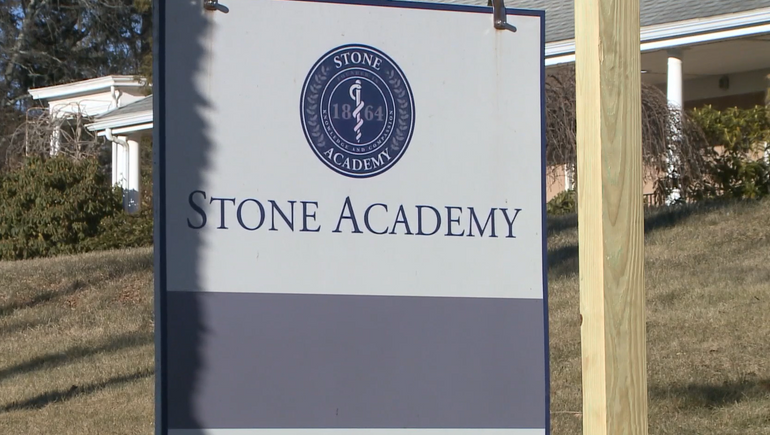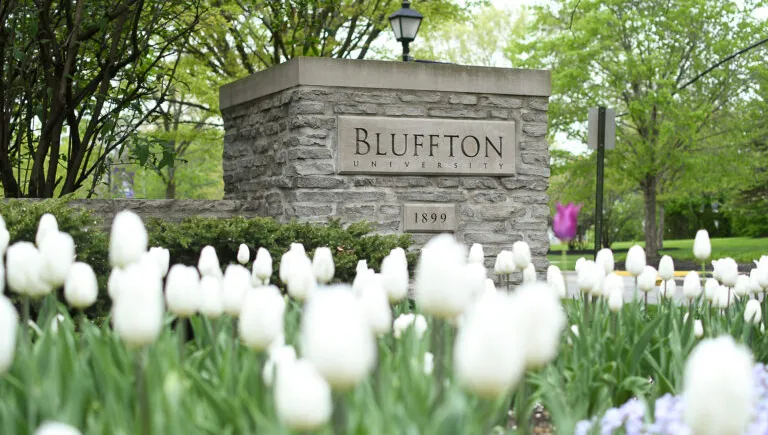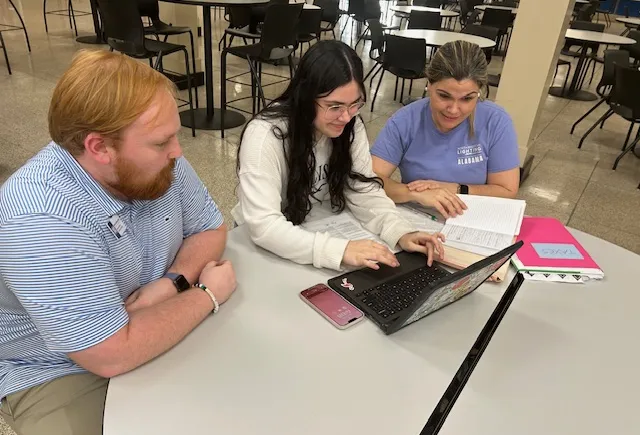[ad_1]
Mari Flynn is the library director and an adjunct humanities instructor at Keystone College, a private nonprofit institution in northeastern Pennsylvania.
I am one of the thousands of people working at a small private college, an endangered institution.
I have done it for over 20 years now, and I love it. Our campus is small enough that everyone not only knows your name but also “your dreams,” as a much-loved president of our college once stated.
It’s corny, but true. He sent birthday cards to all employees and college baby swag to all newborns. It is this very familiarity and camaraderie that makes the small college experience special for those who attend and work there.
Still, sometimes life on a small campus can be hard.
Every year, a few institutions — not mine, but others just like mine — unceremoniously shutter. They close, probably after years of austerity, years of people doing more with less, and years of committed employees sacrificing and pitching in for the good of the group.

Credit: Joelle P. Sherlock
I wonder if these institutions and the people who ran them were proud of how they exited. We owe it to our customers and we owe it to ourselves to fight the good fight, but also, if the end is drawing near, to exit with dignity and to die a good death.
What might that look like? When it comes to the hard decisions, were they kind and transparent? Were people blindsided with reassignments that ignored expertise, merit and tenure, or did colleagues brainstorm creative ways to soften harsh strategies?
We have all heard the stories of people with impeccable careers — merit awards, collegial respect and inarguable work ethic — given a few hours of notice that their positions have been eliminated.
Some will call my stance untenable or naïve. I know that.
When I read “Death of a Salesman,” I recognized the cruel but truthful irony of the play’s protagonist railing against his job loss by saying, “You can’t eat the orange and throw the peel away — a man is not a piece of fruit!”
Yet that is exactly what we do. However, as educators, our job is to make sure we and our students learn from the protagonist’s suffering and try to do better going forward.
Could salary cuts be softened with the flexibility of a 10-month contract or some remote work option? Such gestures can go a long way toward recognizing excellent work and humanizing seemingly callous decisions.
If positions needed to be eliminated, were those decisions done in secret? Or were they made openly by understanding people who were clear about the factors they used in coming to these decisions? Did the people making these calls even know what affected employees do?
For large strategic decisions, did leaders consult all the information at hand to understand and avoid the mistakes of the past? Did they dig deep into their institution’s history and core curriculum to deliver an ethical plan?
I hope so. I hope that leaders at all colleges — especially those predicated on the liberal arts tradition of educating students to be good citizens and thoughtful stewards — are remembering who they are as they make difficult decisions in an increasingly competitive field.
If your small college is anything like mine, you may have a large number of Pell Grant recipients whose family members may already be working in less-than-ideal circumstances. They send their children to us for one-on-one attention in the hopes of building something better.
These students need to see honest collegiality and compassionate and ethical work conditions on our campuses.
That may be difficult under some circumstances. Maybe some of us haven’t seen a raise in years. Maybe we were recently reassigned to other offices by people who didn’t even know our names. Or maybe we always receive news of difficult decisions at 5 p.m. on a Friday to limit discussion and blowback.
Adding insult to injury can take many forms, if leaders let it. Don’t let it.
The National Academy of Medicine has said a good death is one that is “free from avoidable distress and suffering for patients, families, and caregivers; in general accord with patients’ and families’ wishes; and reasonably consistent with clinical, cultural, and ethical standards.”
A good death for colleges is difficult but doable — but only if we have open, honest conversations.
All of us in higher education should be having these conversations now, regardless of our fiscal strength. If times get tough and enrollment declines, what are we willing to compromise and for how long? If we need to partner, what will we look for? And if we need to change direction, how will we honor and take care of the people who have gotten us this far?
We will never be free of all suffering, but we can show students that it can be lessened with compassionate leadership. If we model these options, we might be able to help them change the working world.
Let’s try a little death with dignity through goodwill, honest appraisals and consensus-building. Exits — full or partial — can still have some honor.
During these difficult times, we should draw upon our liberal foundations and model what we teach. Business and ethics need not be oxymoronic. Instead, they can be balanced and serve as an example for all — knowing when to stay or fold does not require the ceding of kindness.
That much-loved president who sent employees’ children swag? He was the kind of person we all hope to work for, but even more valuable, he was the kind of person you trusted on even the saddest of days to do the right thing. What kind of person are you?
Of course, I hope we never have to deal with these situations. I hope that with some creative problem-solving, more colleges can survive than they think. But if things don’t work out or if hard decisions need to be made, I hope all of us do one another proud.
[ad_2]









